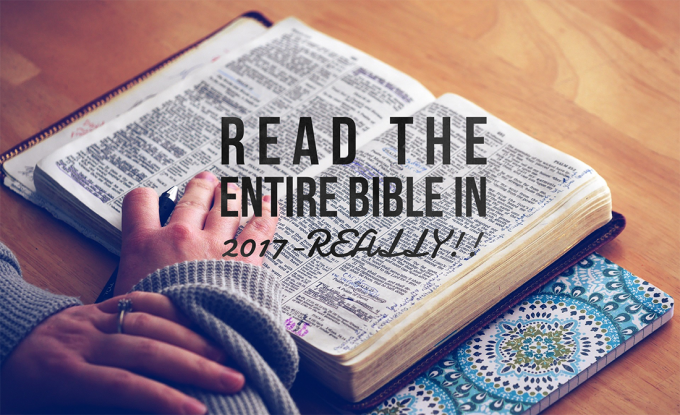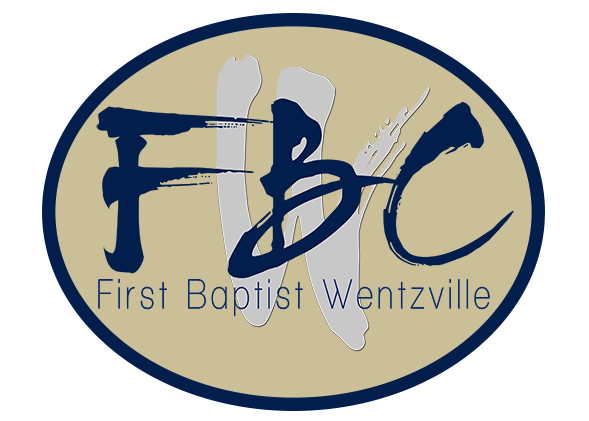
I don’t have time! It’s too hard to understand! I already attend both a Bible study and worship service weekly. Sometimes I even come on Wednesday evenings. That’s more than enough.
What about you? How would you rate your spiritual appetite? Do you regularly “feed” on Jesus, the Bread of Life, by reading, studying, and applying His word? If not, why not begin 2017 by asking God to increase your hunger and thirst for the study of His Word. In John 6:35, Jesus declared, “I am the bread of life. He who comes to me will never go hungry, and he who believes in me will never be thirsty.”
While there is no right or wrong way to read the Bible through, here are some suggestions to consider:
- Alternate between the Old and New Testaments.
- Start with the Books of Genesis and Exodus.
- When you finish Exodus, move to the New Testament and read the gospels (Matthew, Mark, Luke, and John) in whatever order you prefer.
- Mark was probably written first, is the shortest, and is quick and fast-paced. Luke is the longest and is written for Gentiles. John was written later, focuses more on what Jesus said, and has some of the deepest and most profound verses.
- When you read the gospels, you might decide to make a list of the attributes of Jesus. For instance, just in the first chapter of John, Jesus is the Word, Eternal, Creator, Life, Light, gives believers the right to become children of God, is God made flesh, brings grace and truth, makes God the Father known, the Lamb of God who takes away the sin of the world, God’s Chosen One, the Son of God, and King of Israel.
- Return to the Old Testament and read Joshua–Esther.
- Read Acts which tells about the early church and the spread of Christianity.
- Read the Minor Prophets (Hosea–Malachi)
- Read Job–Song of Solomon and Lamentations.
- Read the rest of the New Testament: Romans–Revelation.
- Read the Major Prophets (Isaiah, Jeremiah, Ezekiel, and Daniel).
- Read Leviticus–Deuteronomy.
- Read the books by subject matter. Start with the area that appeals to you most.
- History: Genesis–Esther plus Acts
- Wisdom/Poetry: Job–Songs of Songs
- Prophetic/Apocalyptic: Isaiah–Malachi plus Revelation
- Gospels: Matthew–John
- Epistles: Romans–Jude
- Read the shortest books first.
- Three Books of the Bible (Obadiah, Philemon and Jude) each have one chapter. The Book of Ruth, some of the Minor Prophets, and some of Paul’s epistles have only a few chapters. There are 66 books in the Bible. One day’s reading could quickly reduce this number, give you a deep sense of accomplishment, and encourage you to keep on reading.
After you choose the reading plan that best suits you (there are several other plans available if none of the above appeals to you), here are some suggestions to make your study more enriching:
- Begin your study with a new Bible. This will enable you to underline and highlight words and verses that speak to you right now.
- Choose a partner and share with each other what God teaches you.
- Always pray first before reading God’s Word. Ask God to eliminate distractions and for His wisdom to understand and apply what you read.
- Avoid coming to the Scriptures (especially familiar passages) with your mind already made up about what it says and means. Let the Holy Spirit be your teacher.
- Read the Bible expecting to learn, change, and to hear a word from God.
- Take notes on what you read.
- What does it say? What does it mean? What am I going to do about what it says and means?
- Is there a command to obey? Is there a promise to claim? Is there a warning?
- How does this truth affect my relationship with God? Others?
- After you have finished reading God’s Word, pray again, take time to listen, and ask God to help you apply what you’ve learned.
- Remember as you read the difficult, hard to understand books, God does not grade us on whether or not we totally understand and remember everything we read. God is much more interested in our desire to spend time with Him and study His Word.
A loaf of bread that stays unopened and on the shelf will not satisfy hunger. God wants us to regularly feed on His Word to equip us, to encourage us, to strengthen us, and to give us a deeper faith. Fight for the spiritual nourishment that only comes from time spent with God in His Word.
“Eat” the Bread of Life—open your Bibles and read and meditate on God’s Word.

